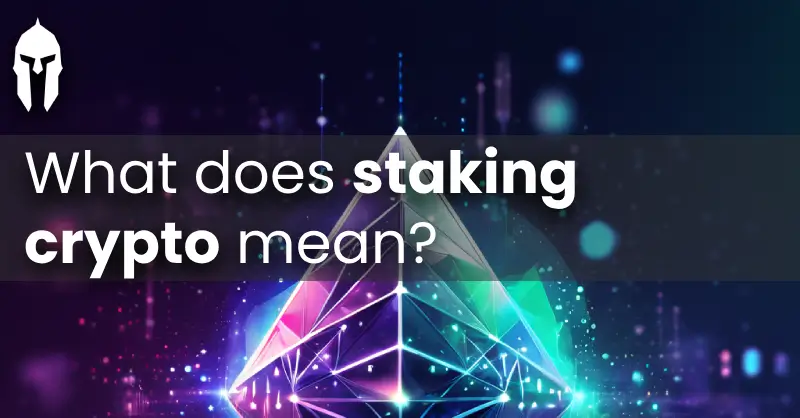
What does staking crypto mean?
May 14, 2024
Staking crypto means locking up your cryptocurrency assets in a wallet or on an exchange, typically in support of a proof-of-stake (PoS) blockchain network. In return for staking your coins, you earn newly minted cryptocurrency as rewards, and you also help to validate transactions and maintain the security of the network. The process is similar to mining, but instead of using computational power, you use your staked coins to participate in the validation process, allowing the blockchain to function efficiently.
Let's elaborate:
1. Proof of Stake (PoS) : In a PoS system, instead of using computational power to mine new blocks like in a proof-of-work (PoW) system, which Bitcoin uses, participants 'stake' their cryptocurrency coins to produce new blocks. This is done by locking up a certain number of coins, known as collateral, into a smart contract or a dedicated wallet. The staking process ensures that the network remains secure and transactions are processed correctly.
2. Validation process : Validators, who hold a significant amount of cryptocurrency as collateral, are responsible for creating new blocks on the blockchain. They are chosen to create a new block based on a selection process that takes into account the amount of collateral they have and the length of time they've been part of the network. Validators who contribute to the network receive newly minted cryptocurrency coins as rewards for their efforts.
3. Rewards : The rewards for staking can vary depending on the blockchain and the specific cryptocurrency being staked. The rewards are usually distributed proportionally to the amount of collateral staked by the validator. Some PoS blockchains also include additional mechanisms, such as slashing (penalizing) validators who behave maliciously or fail to maintain the network's integrity.
4. Risks : While staking is generally considered a low-risk investment, there are certain risks involved. If a validator behaves maliciously or behaves irresponsibly, they can lose a portion or all of their collateral. Additionally, if the price of the cryptocurrency fluctuates significantly, it could affect the overall value of your staked assets.
5. Staking platforms : There are various platforms and exchanges where you can stake your cryptocurrency. Some platforms require you to hold your assets on their exchange, while others offer a 'staking-as-a-service' model, where they manage the process for you. You may also be able to stake cryptocurrency through a hardware or software wallet to use a service like Myrmidon Staking .
6. Delegation : If you don't want to set up your own validator node or manage your staking process, you can delegate your crypto coins to a trusted validator or staking pool. Delegation allows you to support a validator or staking pool that manages your crypto coins on your behalf, earning you rewards in return. However, you need to be cautious when choosing a delegate or staking pool, as they may take a percentage of your rewards or may not be trustworthy.
So, what does staking crypto mean? In summary, staking crypto involves locking up your cryptocurrency assets in support of a PoS blockchain network, in exchange for rewards and the opportunity to participate in the validation process. It's an investment that can potentially provide a steady stream of passive income, while also contributing to the security and growth of the underlying network.